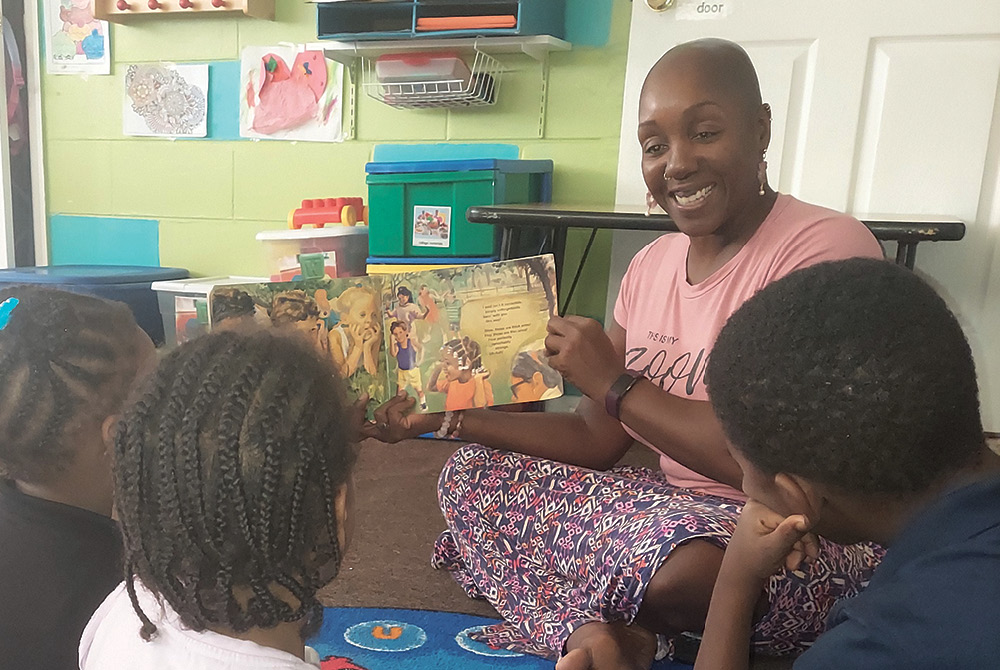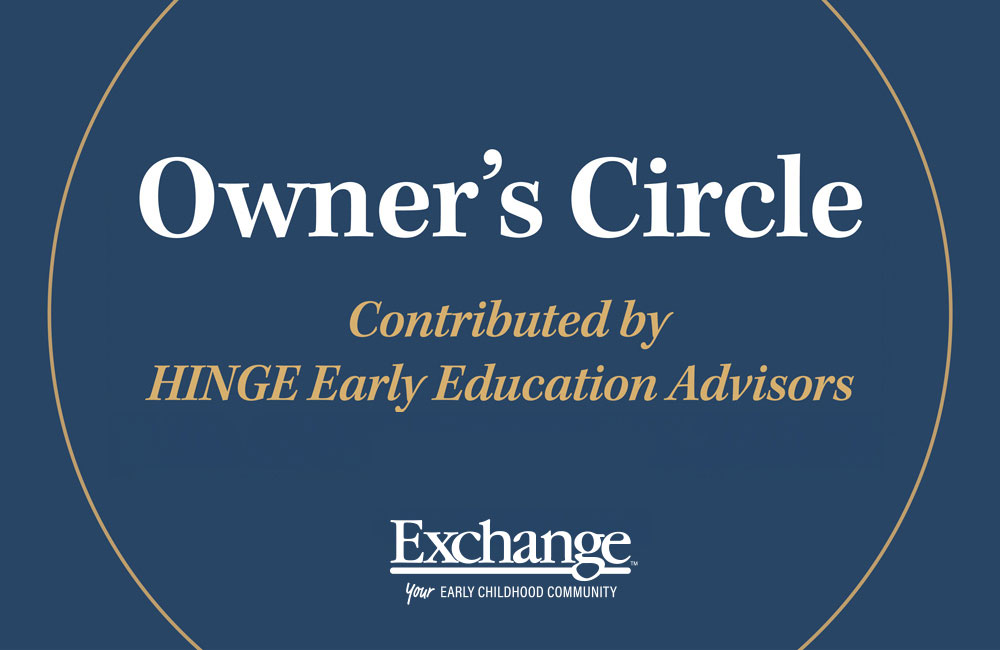“I did not find the early childhood field,” Monica Duncan told me. “It chose me and has never let go.” As we talked about Monica’s varied leadership journey, she explained how her career began with a master’s degree in social work, which allowed her to find jobs that “improved the quality of life for whatever demographic I was serving.” But after she was recruited by First Children’s Finance, an organization that supports early childhood programs with the business aspects of the field, she never looked back.
“Once you enter the world of early childhood education, you cannot help but fall in love,” she said. “I came to love the people, the mission and the passion of the work.”
When I asked Monica about some of the highlights of her work in varied ECE settings, she kept returning to the theme of relationships.
“You cannot be an effective leader without cultivating relationships,” she told me. “Over the years I have learned from so many people. I learned that as I began providing services to early childhood programs, I had as much to learn from them as they did from me. I learned to always be open to feedback and suggestions. I worked on my ability to be a great listener. And over the years, through so many great relationships, I learned the value of humility, openness and a collaborative temperament.”
Monica and I talked about how hard it is sometimes to truly be open to feedback from others, especially when people point out our mistakes.
“I have benefitted so much from being open to critics,” Monica told me. “Sometimes their criticism came to me with soft filters, but sometimes it came completely unfiltered. At times like that I had to tell myself that their criticism was a gift to me. It provided information and insight on how I could do things better. It taught me to be able to listen without being defensive. I had to go into those situations with integrity and authenticity.”
Monica explained that over the years she has come to realize that people really cannot become effective leaders if they have not experienced some “bumps and bruises along the way.” She told me about being a young leader who wanted to bring new ideas to her more-experienced colleagues, but was met with some resistance to change.
“I had to learn to balance respect for the wisdom of their experience, while also helping them be open to new thinking.”
During that difficult balancing act, Monica acknowledged that she fell a few times, but she said she always “fell forward.” In fact, she has a saying she uses often: It is important for a leader to fail forward. She explained that failures help us learn to “recalibrate, become more nimble, and learn what does not work so we can find the strategies that work best.”
ADVERTISEMENT
In Monica’s newest role on her leadership journey, she is helping to create an organization called Thrive Community Building, which is a sister organization to the Community Development Institute. As CDI worked with Head Start programs, providing technical assistance in many areas, they realized that other early childhood programs could benefit from that same type of assistance. Thus, Thrive Community Building was born, with these three goals:
- To assist the early childhood field with their facility needs—both in design and implementation.
- To offer support with safety and supervision—helping programs create and implement the most effective policies, procedures and practices.
- To offer strategies that help build cohesive and collaborative teams, assisting organizational leaders in developing a positive and thriving culture.
“I am excited about what Thrive can do to support quality in the early childhood field,” Monica said enthusiastically. “We can work with partners in many different communities, learn from them, have a positive impact and customize services to meet their individual needs. When I think about how we can combine the expertise of the Thrive team with the passion and commitment of the ECE organizations we will be serving, I know we will create something magical for children and families.”
My last question to Monica was whether she has met mentors along her leadership journey who have been important to her growth.
“Yes, absolutely,” she replied. “Some I call ‘everyday’ mentors, because I meet them all the time… people I work with in various settings who lead by example, give great feedback, and words of affirmation just when I need them. They show up all the time and I am so grateful to all of them. The other two mentors are people I worked with at First Children’s Finance: Bob-e Simpson-Epps and Mara O’Neil. Bob-e shared with me so openly, teaching me about some of her own mistakes, so I would not repeat them, encouraging me when I doubted myself. Mara was a great role model for me about how to make an intimidating subject accessible to people—and even fun. For many early childhood leaders, who know so much about child development, the subject of managing finances and developing financial systems is a sensitive subject, even a scary one. Mara showed me how to help people identify strengths they already had (that they might not even realize) and build on them. She led with ease and inspired confidence. These two women were and continue to be great examples for me.”
I suspect that in the future, in one of these columns even, early childhood leaders will be talking about how Monica Duncan served as a great mentor, encouraging others to claim their gifts, be open to new ideas, fail forward… and learn to thrive!
Nancy Rosenow is founder and retired CEO of Dimensions Educational Research Foundation, the parent company of Exchange Press.
Related
ADVERTISEMENT











